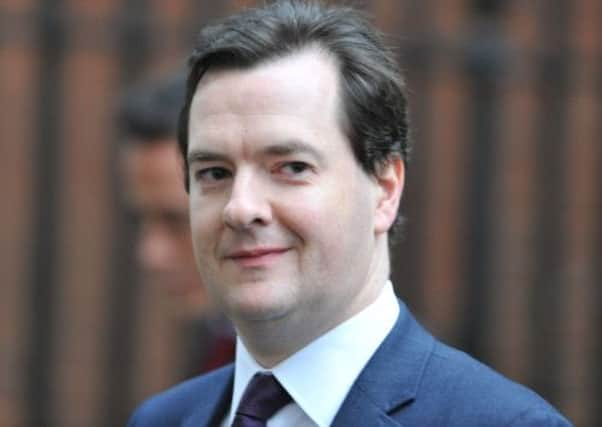Exclusive: Yorkshire to suffer more than South as cuts bite


Analysis of Chancellor George Osborne’s plans to cut council spending in 2015 suggests Yorkshire will be hit harder than much wealthier parts of the country.
Yorkshire councils could see a cut in their spending power of around £63 per person compared with £38 in the South East.
Advertisement
Hide AdAdvertisement
Hide AdMr Osborne’s plans for the financial year following the next general election are on top of cuts already in place since 2010. The new figures suggest that by 2017 Yorkshire councils’ spending power will have been cut by £220 per person compared with £45 in the South East.
The coalition last night disputed the figures, insisting funding was fair for all parts of the country and urging councils to do more to recover uncollected council tax and reduce waste.
The latest figures have been produced by SIGOMA, a body representing largely urban authorities including 10 in Yorkshire, and come after a string of warnings this week from Yorkshire councils over fresh spending cuts next year.
SIGOMA chairman Sir Steve Houghton, leader of Barnsley Council, said: “What is clear with the latest settlement is the gap between more affluent areas and more deprived areas, and in particular between the North and the South, is getting wider and because of the way the Government has set up the system that gap will get bigger.
Advertisement
Hide AdAdvertisement
Hide Ad“The Government models the impact so they know who is getting hit and who is not getting hit. This is not an accident, they know exactly what they are doing.”
Councils in the North argue that they suffer from changes to the way they are funded which rewards areas with more businesses paying rates and where new homes are being built rather than where there is social need.
Sir Steve urged the Government to use money it has earmarked to support growth to invest in the economy of the North.
“If they want to reduce the welfare bill in the North they are going to have to help regenerate the economy and create jobs,” he said.
Advertisement
Hide AdAdvertisement
Hide Ad“The way out of our problems is not through better benefits it is by investing in economic projects in the North so we can get people back to work and improve their quality of life.”
Spending power is the Government’s preferred measure of councils’ finances and includes the money an authority receives from Government, business rates and council tax.
The Government insists the cut to councils in 2015 will be £2.1bn, or 2.3 per cent, but local authorities argue that when inflation and further funding changes are taken into account it will be closer to 10 per cent.
A Department for Communities and Local Government spokeswoman said: “This government has secured a good deal for councils, including freezing council tax for a further two years and £3.8bn for adult social care.
Advertisement
Hide AdAdvertisement
Hide Ad“Funding is fair to all parts of the country – rural and urban, North and South, metropolitan and shire – ensuring the smallest reductions for the councils most reliant on government support and it will reward councils that strive to improve their communities. This year Sheffield has a spending power of £2,200, Leeds £1,873 and Hull £2,272 – all more than the £1,814 for households in Wokingham.
“There is more councils can do to recover the £2bn a year of uncollected council tax, reduce the £2bn lost to fraud and error and use £19bn of reserves they hold to reduce waste and protect frontline services.”